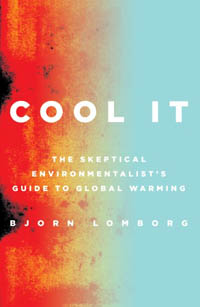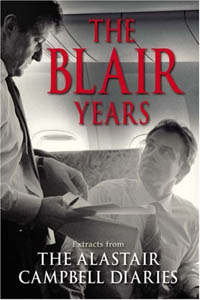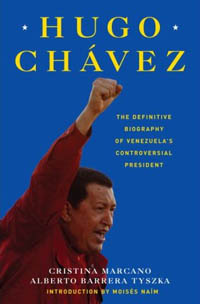Pulp Politics
Hot Off the Press
Any political issue that floats into the public consciousness brings with it a trail of journalists, academics, pundits, and cranks, all eager to make their points. They do so by writing books-lots of them-and here at The Independent, they crowd our shelves to the breaking point. For this month’s Hot Off the Press, we’ve taken a sample of the newest crop of high-profile political releases meant to push all sorts of buttons on the day’s big topics: global warming, the Middle East, socialism’s Latin American resurrection, and, of course, Tony Blair.

Cool It: The Skeptical Environmentalist’s Guide to Global Warming
Bjorn Lomborg
Best known for The Skeptical Environmentalist-a 2001 tome spanning most, if not all, areas of major environmental concern-Danish professor Bjorn Lomborg has returned with Cool It, a compact, Chip Kidd-designed volume focusing on that most divisive of all phenomena, climate change. Lomborg brings a refreshingly moderate view to the table, arguing that Earth really is warming due to the actions of humankind, but that we must weigh the costs and benefits of proposed solutions carefully, with an eye toward the livability of the planet in general. To Lomborg, implementing expensive, marginally effective solutions on a massive scale is inexcusable in a world where developing-world poverty and disease kill so many in the present.

The Blair Years: The Alastair Campbell Diaries
Alastair Campbell
Rumor has it that, during his time as director of communications and strategy, Alastair Campbell scribbled more than two million words into his private journals. Now that his boss has exited the world stage, Campbell has published 757 pages of those words in the shape of The Blair Years: The Alastair Campbell Diaries. Providing many hours of enjoyment for dedicated followers of British politics, the book also provides casual readers with a well-placed window into an ultimately controversial government. Some have bemoaned the paucity of dirt on Prime Minister Gordon Brown and the maneuvering behind Britain’s entry into Iraq, but they can hold out hope: Campbell tops off his text with the words, “To be continued.”

The End of Iraq: How American Incompetence Created a War without End
Peter W. Galbraith
Though Alastair Campbell may omit his opinion about Iraq, Peter W. Galbraith, former U.S. diplomat and the son of economist John Kenneth Galbraith, certainly does not. His new release, bearing the unequivocal title, The End of Iraq, chronicles his experience in the country before, during, and after the United States’ invasion. Galbraith recommends partitioning Iraq into three states: one Sunni, one Shi’a, and one Kurd. Having done a great deal of work to help the people of Iraqi Kurdistan-so much so that he’s considered an honorary Kurd-it’s in matters related to that region’s independence that his arguments are most convincing.

Elvis Is Titanic: Classroom Tales from the Other Iraq
Ian Klaus
Along for one of Peter Galbraith’s 2005 trips to northern Iraq was young teacher Ian Klaus, whose time spent giving American history and English lessons at Salahaddin University became the subject for Elvis Is Titanic. Klaus succeeds in telling a series of human-level stories strikingly different from the footage of destruction airing around the clock on cable news, making the point that Iraq is not uniformly chaotic, despite the current of uneasiness running through the country. Unfortunately, Klaus’s educational journey was cut short when, identified as Chelsea Clinton’s former boyfriend, he had to hightail it out of there.

Hugo Ch¡vez
Cristina Marcano & Alberto Barrera Tyszka
As troubled areas of the world go, Venezuela, led by the increasingly dictatorial Hugo Ch¡vez, looks to be headed in a direction scarcely preferable to the one taken by Saddam Hussein’s former domain. Cristina Marcano and Alberto Barrera Tyszka’s eponymous biography attempts to shed some light on Ch¡vez’s early life, rise to power, motivation, and aspirations. For an English-speaking audience, no other account exists in the same league of completeness and scholarship. While certain elements of Ch¡vez’s life story-the impoverished childhood, the troubled offspring, the wives, the mistresses-feel like cliches of the rise-to-power genre, any insight into the radicalization and ascent of such a figure is valuable. To much of the English-speaking world, loud, belligerent socialists with imperial ambitions are thought a dying breed; this book shows that the archetype lives on in the 21st century.



